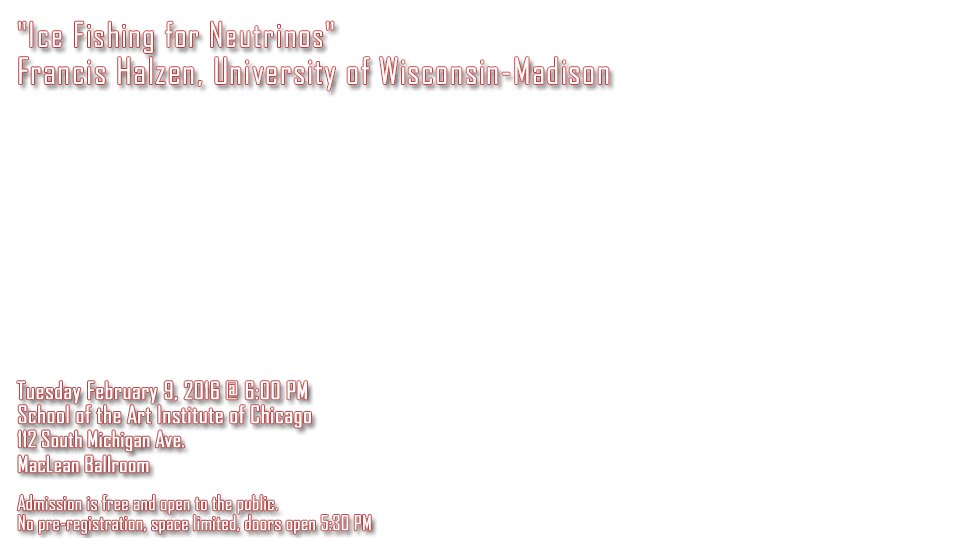2015-2016 Brinson Lecture: "Ice Fishing for Neutrinos"
Tuesday, February 9, 2016 @ 6:00 PM | School of the Art Institute of Chicago, 112 South Michigan Ave., MacLean Ballroom
IceCube is a strange telescope which looks down rather then up. It is located at the South Pole and it is BIG (a cubic kilometer) with eighty-six holes over 1.5 miles deep melted into the Antarctic icecap. IceCube recently discovered a flux of neutrinos reaching us from deep in the cosmos, with energies more than a million times greater than those humans can produce in accelerators. These energetic neutrinos are astronomical messengers from some of the most violent processes in the universe including: starbursts, giant black holes gobbling up stars in the heart of quasars and gamma-ray bursts, the biggest explosions since the Big Bang. We will explore the IceCube telescope, its recent scientific results, and working at the South Pole.
Francis Halzen, 2015-2016 Brinson Lecturer
Francis Halzen is a theoretical physicist who works at the interface of particle physics, astrophysics and cosmology. He is the Principal Investigator for IceCube, the world's largest neutrino detector, the Director of the Institute for Elementary Particle Physics, and the Hilldale and Gregory Breit Distinguished Professor at the University of Wisconsin-Madison. Among his recent honours are the 2015 Balzan Prize, the European Physical Society Prize for Particle Astrophysics and Cosmology in 2015; the Smithsonian American Ingenuity Award for Physical Sciences in 2014; the Physics World Breakthrough of the Year Award for making the first observation of cosmic neutrinos; and the International Hemholtz Award of the Alexander von Humboldt Foundation in Germany.
For more information see the IceCube website.
For more information see the IceCube website.
Admission is free and open to the public. No pre-registration, space limited. Doors open 5:30 PM.
This event is co-sponsored by the University of Chicago and the School of the Art Institute of Chicago.
This event is made possible by a generous gift from the Brinson Foundation to the University of Chicago.
This event is made possible by a generous gift from the Brinson Foundation to the University of Chicago.







